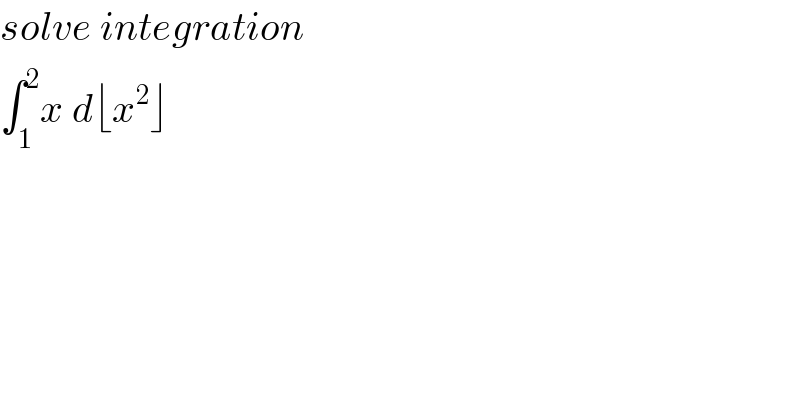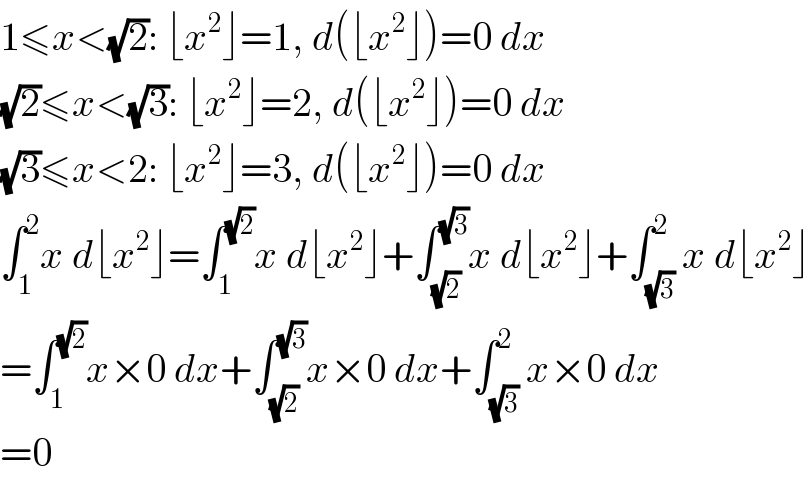Question Number 85020 by M±th+et£s last updated on 18/Mar/20

Commented by mr W last updated on 18/Mar/20

Commented by M±th+et£s last updated on 18/Mar/20
![i think the solution is 2+(√3) +(√2) u=x →→ du=dx v=d⌊x^2 ⌋→→ v=⌊x^2 ⌋ I=[⌊x^2 ⌋]_1 ^2 −∫_1 ^2 ⌊x^2 ⌋ dx (8−1)−[(∫_1 ^(√2) ⌊x^2 ⌋dx +∫_(√2) ^(√3) ⌊x^2 ⌋dx+∫_(√3) ^2 ⌊x^2 ⌋dx)] 7−[[1]_1 ^(√2) +[2]_(√2) ^(√3) +[3]_(√3) ^(√2) ] 7−[(√2) −1+2((√3) −(√2))+3(2−(√3))] 7−[−(√2) −(√3) +5] 2+(√3)+(√2)](https://www.tinkutara.com/question/Q85032.png)
Commented by mr W last updated on 18/Mar/20

Commented by M±th+et£s last updated on 18/Mar/20

